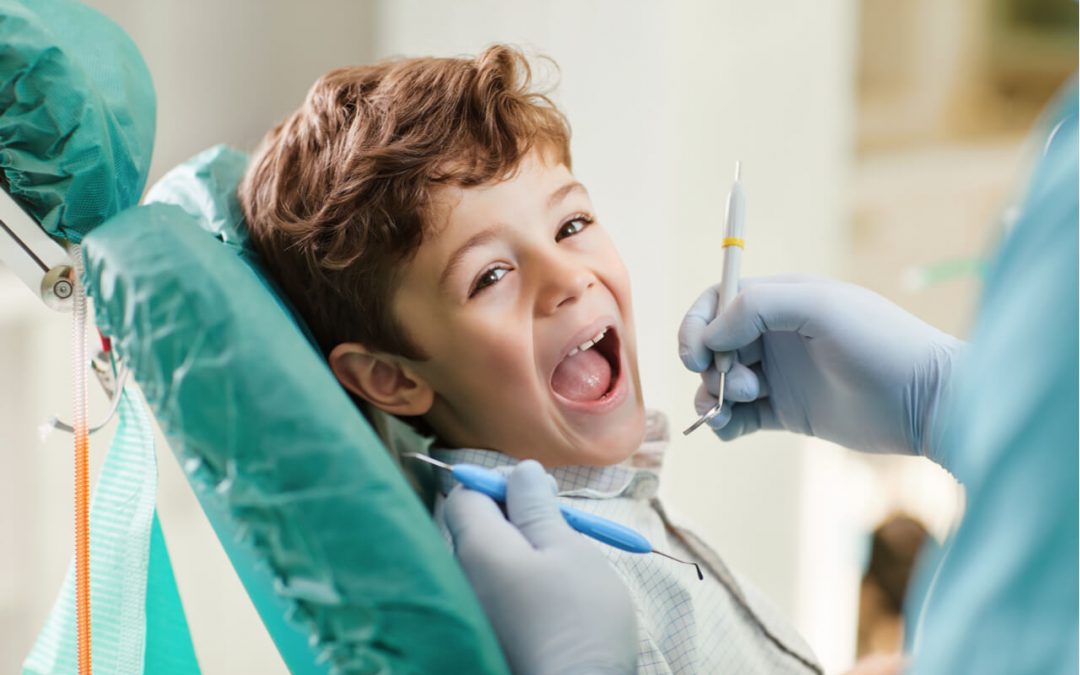Different forms of injury to the soft palate are a common occurrence. These can happen for all ages, from newborns to the elderly. However, because of their tendency for mechanical falls, while holding objects in their mouth, these injuries are more prevalent among toddlers. Although the majority of these injuries have no long-term outcomes, some can have serious consequences. Therefore, aside from identifying when a dental emergency is necessary, it is also crucial to carefully assess the severity of an injury to the roof of the mouth.
Injury to the Roof of the Mouth
A child’s soft palate tissues may have not yet undergone a full development that even the slightest pressure may perforate the area. So, it is best to perform a thorough examination of the child following any falls. In addition to an in-depth oral evaluation, parental surveillance is an important step in the early detection of complications. Soft palate and oropharynx injuries can occur at different locations in the mouth. These areas include the pharyngeal walls, the uvula, the tonsillar region, and the midline. The soft and hard palates are mostly affected, with no perforation. Wounds that are linear and superficial are more common.
What Causes of Palate Injury?

Items in Mouth
The most prevalent items that cause impalement injuries in children are pens, sticks, cylindrical toys, or even straws. Among these items, straws are the most common, covering around thirty percent of the cases. Moreover, toothbrushes are also known to cause these injuries.
Mouth Sores
Cold sores and canker sores typically develop on the gums, lips, or cheeks. In some circumstances, they may also occur on the roof of the mouth. Wounds, swelling, and blisters are all possible side effects of sores. On rare occasions, some patients may experience discomfort or slight fever before the sore forms.
Dehydration
Swelling and other injuries on the roof of the mouth can be due to dehydration. Dehydration can result in a dry mouth, leading to significant discomfort when not taken care of. Dehydration can also lead to an electrolyte imbalance and make a person feel weak or induce muscular spasms.
Mucoceles
A mucocele is a lumpy cyst that develops on the roof of the mouth and can include an accumulation of mucus. Mucoceles are normally painless and develop following a slight injury to the mouth, such as a cut on the roof. They typically don’t need to be treated and can rupture on their own. A doctor can safely drain a mucocele that is unusually big or prone to recurrence.
Squamous Papillomas
Squamous papillomas can occur from a virus called the human papillomavirus (HPV). Noncancerous lumps that develop on the roof of the mouth are known as squamous papillomas. Normally, these tumors do not cause any discomfort. People should, however, seek treatment after identifying and diagnosing a tumor. It’s conceivable that a doctor will have to remove the tumor via surgery.
Underlying Medical Conditions
An underlying medical problem, such as oral cancer or viral hepatitis, may cause swelling and injuries to the roof of the mouth.
Prevalence of Mouth Injuries
According to research studies, the average age of patients with impalement injuries is less than four years old. Males are two to three more times as likely as females to get involved.
How to Treat Injuries to The Roof of Mouth?
You should keep in mind that treatment as well as the healing process is straightforward. Since the majority of palate injuries recover by themselves, in-hospital treatment is not necessary. Outpatient treatment, however, is available for the majority of the soft palate and oropharyngeal injuries. On the other hand, dental surgeons are necessary for conditions where wounds are through-and-through. This situation requires examination of the incision from the foreign item. Suture implantation is beneficial, according to some studies. Although in specific cases, it may not be a good idea. Sutures may increase the amount of damage done and the time it takes for the body to recuperate. However, preventive antibiotic medication should start immediately right after to avoid facial cellulitis. Three weeks should be enough time for the wound to heal completely with minimum scars.
Caring for Mouth Injury At Home
Here are some important tips to consider when caring for an injury to the roof of your mouth:
Apply a cold compress to the region that has the injury. Alternatively, have your child suck on some ice or a flavoured ice pop.
- After meals, rinse the wound with warm saltwater. Saltwater rinses may help with pain relief. To produce a saltwater solution for mouth rinsing, combine one teaspoon of salt with one cup of warm water.
- Consume soft, easy-to-swallow increments of meals. You should also avoid foods that sting. Salty or spicy meals, citrus fruits or liquids, and tomatoes are all examples.
- When it comes to medications, be cautious. Administer pain relievers precisely as prescribed. Ask your doctor whether you can take an over-the-counter pain reliever if you don’t use a prescription pain reliever.
- To relieve mouth discomfort, try using a topical medication. If your kid is under the age of two, check with your doctor to see if he or she may take this drug.
When is it Time to Call your Doctor?
Though most causes of injuries on the roof of the mouth do not necessitate medical attention, in rare cases, a person should consult an emergency dentist. The following are some of the reasons to consult a doctor:
- Pain that persists even after the use of over-the-counter medicines
- Swelling that is unexplained or lasts longer than a week
- Injury or swelling accompanying other symptoms
If you suspect your child or know someone who has an injury to the roof of the mouth, schedule an appointment with a dentist immediately. The pain associated with a soft palate can be severe; however, the sooner you receive care for their injury, the faster the discomfort will subside. It is important to remember that getting emergency care for an injured palate is critical. Please do not hesitate to contact us right away at (08) 7078 8263 for more information. You can also book your appointment through our website.


 Apply a cold compress to the region that has the injury. Alternatively, have your child suck on some ice or a flavoured ice pop.
Apply a cold compress to the region that has the injury. Alternatively, have your child suck on some ice or a flavoured ice pop.